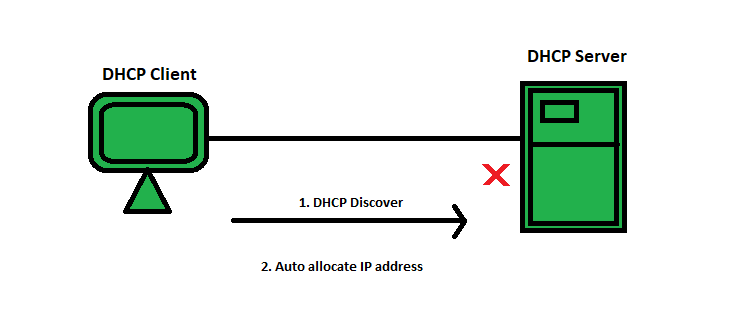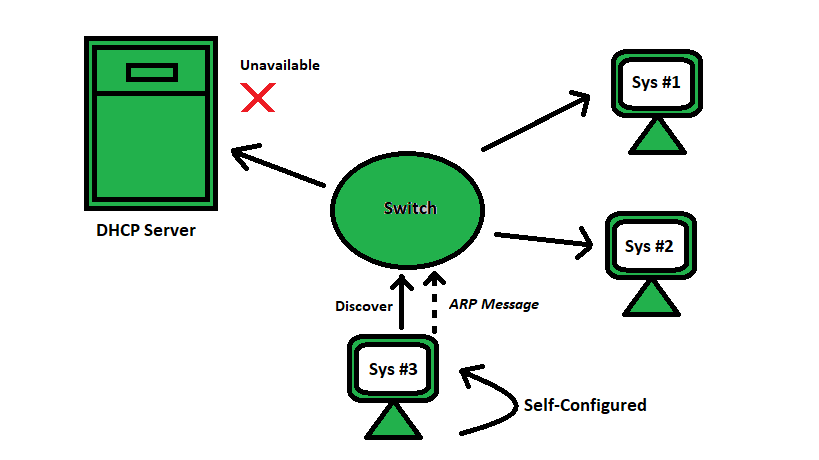APIPA stands for Automatic Private IP Addressing (APIPA). It is a feature or characteristic in operating systems (eg. Windows) which enables computers to self-configure an IP address and subnet mask automatically when their DHCP(Dynamic Host Configuration Protocol) server isn’t reachable. The IP address range for APIPA is (169.254.0.1 to 169.254.255.254) having 65, 534 usable IP addresses, with the subnet mask of 255.255.0.0.
History
Initially, the Internet Engineering Task Force (IETF) has reserved the IPv4 address block 169.254.0.0/16 (169.254.0.0 – 169.254.255.255) for link-local addressing. Due to the simultaneous use of IPv4 addresses of different scopes, traffic overload becomes high. The link-local addresses are allocated to interface i.e., stateless in nature such that communication will be established when not getting a response from DHCP Server. After that Microsoft refers to this address autoconfiguration method as “Automatic Private IP Addressing (APIPA)”.

Automatic Configuration and Service Checks
It starts with when the user(client) is unable to find the data/information, then uses APIPA to configure the system with an IP address automatically(ipconfig). The APIPA provides the configuration to check for the presence of a DHCP server(in every five minutes, stated by Microsoft). If APIPA detects a DHCP server on the network configuration area, it stops, and let run the DHCP server that replaces APIPA with dynamically allocated addresses.
Note: To Know the given IP address is provided by which addressing, just run the following command:
ipconfig/all

Characteristics
- Communication can be established properly if not getting response from DHCP Server.
- APIPA regulates the service, by which always checking response and status of the main DHCP server in a specific period of time.
Advantages
- It can be used as a backup of DHCP because when DHCP stops working then APIPA has the ability to assign IP to the networking hosts.
- It stops unwanted broadcasting.
- It uses ARP(Address Resolution Protocol) to confirm the address isn’t currently in use.
Disadvantages
- APIPA ip addresses can slow you network.
- APIPA doesnot provide network gateway as DHCP does.
Limitations
- APIPA addresses are restricted for use in local area network.
- APIPA configured devices follow the peer to peer communication rule.